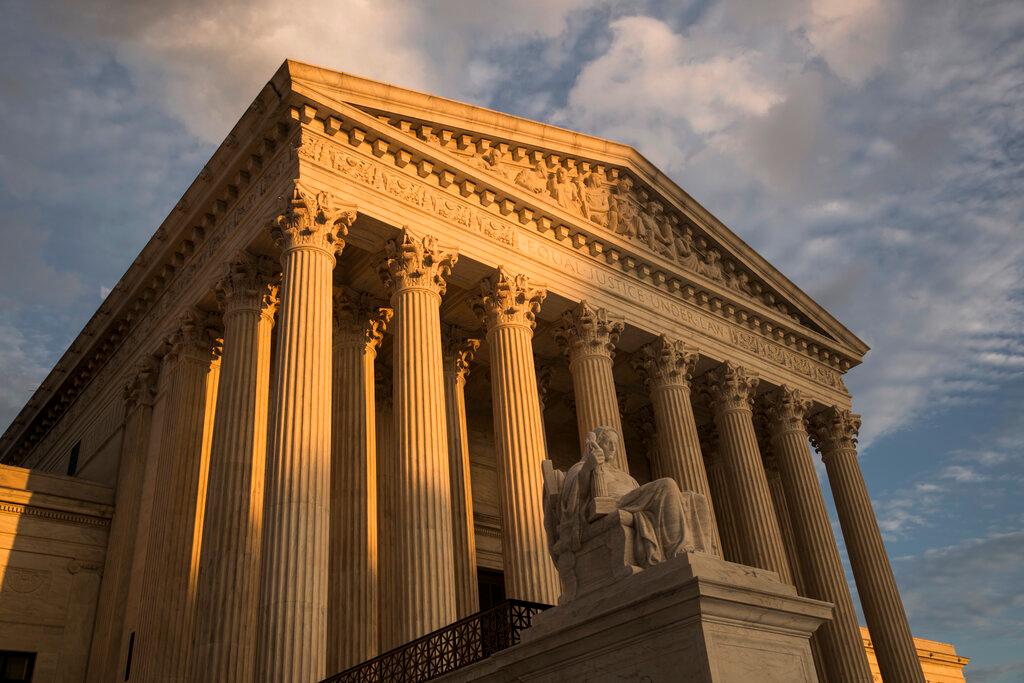WASHINGTON (AP) — The Supreme Court on Tuesday made it easier for religious schools to obtain public funds, upholding a Montana scholarship program that allows state tax credits for private schooling.
Monumental decision affirms the right of parents to direct the education of their children.
The court’s 5-4 ruling, with conservatives in the majority, came in a dispute over a Montana scholarship program for private K-12 education that also makes donors eligible for up to $150 in state tax credits.
The Legislature created the tax credit in 2015 for contributions made to certain scholarship programs for private education. The state’s highest court had struck down the tax credit as a violation of the Montana constitution's ban on state aid to religious schools. The scholarships can be used at both secular and religious schools, but almost all the recipients attend religious schools.
Chief Justice John Roberts wrote the opinion that said the state ruling violates the religious freedom of parents who want the scholarships to help pay for their children's private education.
Parents whose children attend religious schools sued to preserve the program.
Reaction from Family Research Council
FRC praises Supreme Court decision to protect school choice and religious liberty in Espinoza vs. Montana
WASHINGTON, D.C. -- Family Research Council praised the decision by the U.S. Supreme Court in Espinoza vs. Montana, which held that it is a violation of the First Amendment to discriminate against religious activity by disallowing neutral and generally-available student-aid programs simply because they afford students the choice of attending religious schools. Now, families who receive education vouchers may apply those vouchers at any school they wish to attend, regardless of its religious affiliation or lack of such an affiliation.
Katherine Beck Johnson, Research Fellow for Legal and Policy Studies at Family Research Council, stated:
"Today, the U.S. Supreme Court handed down a decision that affirmed one of America's first freedoms, established in the First Amendment--the right of religious freedom. America was founded, in part, to apply the principle that a government may not tell anyone what to believe or how to worship. For many Americans, our religion informs every aspect of our lives, from where and how we worship, to how we interact with civil society, to how to educate our children. Americans of faith even come together to form institutions united around their common goals.
"Too often government rules discriminate against people of faith because of a misunderstanding about religious freedom. The practice of shutting people off from generally available public benefits simply because of their faith is harmful and dangerous. Montana's Blaine Amendment, which denied school choice funds for families that wanted to send their children to religious schools, was religious discrimination, pure and simple.
"This decision underscores the reality that people of faith have always been integral to the fabric of America. They continue to provide valuable services to the community, in education as elsewhere. We are glad the Supreme Court today stepped up to protect people of faith from discrimination and affirmed parental choice," concluded Johnson.
Reaction from The Center for Education Reform:
Monumental decision affirms the right of parents to direct the education of their children.
WASHINGTON, D.C. — The decision of the Supreme Court in favor of the plaintiff in Espinoza v. Montana Department of Revenue validates a parent’s constitutionally protected right to direct the education of their children.
“The weight that this monumental decision carries is immense, as it’s an extraordinary victory for student achievement, parental control, equality in educational opportunities, and First Amendment rights,” said Jeanne Allen, the founder and chief executive of the Center for Education Reform (CER).
“For many families, Espinoza not only provides the potential for expanded opportunities for them to educate their children, including the choice of religious education, but also the right to decide what they believe is the most effective way to do so.”
As the plaintiffs argued, and CER reinforced in its amicus brief, denying parents their school of choice because of its religious nature — on the basis of Blaine Amendments enacted by many states decades ago — injures parents and children by violating bedrock constitutional principles. This is especially true for low-income families who are bound by their zip codes and financial barriers to chronically substandard schools. The Espinoza victory represents monumental progress toward reversing damage that has been done for nearly 150 years and which states can now address.
Former Solicitor General Paul Clement, author of CER’s amicus brief, adds, “In some states, legislation may be sufficient to enjoin application of a Blaine Amendment. In other states, an advisory opinion (from the Attorney General or state supreme court) may be the preferred course. In still other states, it may be necessary to bring a declaratory judgment action seeking a court ruling. And a state’s particular law and circumstances may call for some combination of these efforts — even all three.”
In the coming days, CER will be reviewing the literature as to how states can best proceed given the complexity of the decision.
